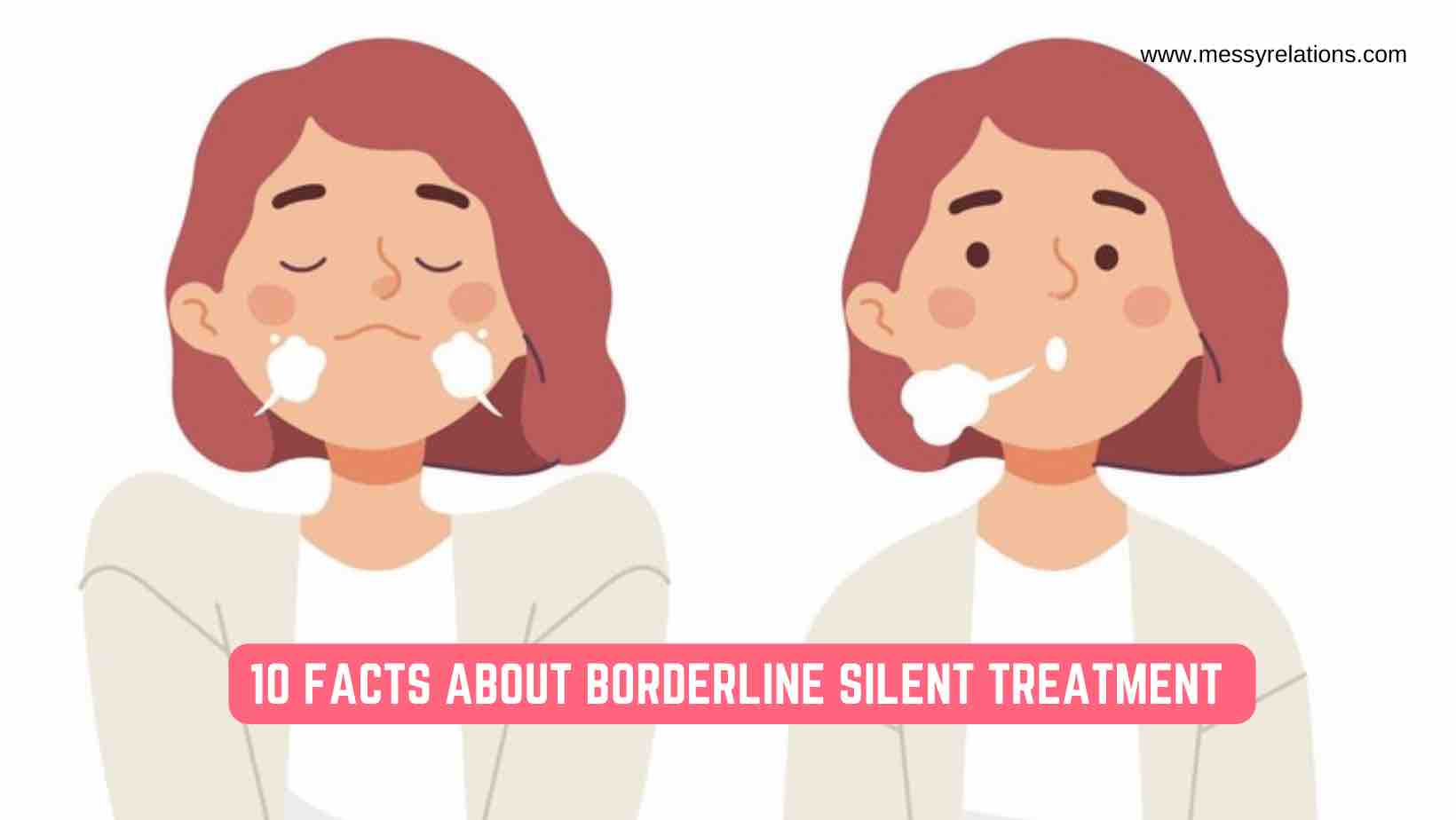In the complex landscape of psychological behaviors, covert narcissism stands out as a subtle yet deeply impactful personality trait. Unlike the stereotypical brash and attention-seeking overt narcissist, covert narcissism is shrouded in a more introverted and often misleading guise. This article aims to demystify covert narcissism, exploring its characteristics, impact on relationships, and ways to manage interactions with individuals who exhibit these traits.
What Is Covert Narcissism?
Covert narcissism is characterized by traits of narcissism such as self-absorption, a need for admiration, and a lack of empathy, but they’re exhibited in more subtle, less obvious ways. Covert narcissists often appear shy, sensitive, and even self-deprecating. This facade masks their underlying self-centeredness and desire for appreciation and recognition. Unlike overt narcissists who openly seek attention, covert narcissists use more passive methods to gain validation and attention.
Traits of Covert Narcissism
Individuals with covert narcissism typically display several defining traits. They often have a fragile self-esteem and are hypersensitive to criticism, reacting poorly to perceived slights. Despite their outward appearance of humility or modesty, covert narcissists harbor grandiose fantasies about their lives and crave admiration and acknowledgment. They may also exhibit passive-aggressive behaviors, manipulate situations and people to their advantage, and struggle with feelings of envy and resentment.
The Impact of Covert Narcissism on Relationships
Covert narcissism can significantly impact interpersonal relationships. Covert narcissists may struggle to form genuine connections due to their lack of empathy and inability to prioritize others’ needs and feelings. In romantic relationships, they can be emotionally distant and uncaring, often leading to frustration and dissatisfaction for their partners. Their manipulative tendencies and sensitivity to criticism can also create a challenging dynamic in friendships and family relationships.
How To Identify Covert Narcissism?
Identifying covert narcissism can be challenging due to its subtle nature. Common signs include feelings of inadequacy, hypersensitivity to how they’re perceived by others, and a tendency to play the victim. Covert narcissists often oscillate between feelings of inferiority and superiority, and they may engage in subtle forms of manipulation, such as guilt-tripping or shaming, to assert control in relationships.
The Origin of Covert Narcissism
The roots of covert narcissism are often traced back to early life experiences. It can develop from a combination of genetic predispositions and environmental factors such as parenting style, childhood trauma, or social influences. A lack of secure attachment, neglect, or inconsistent parenting can contribute to the development of covert narcissistic traits.
Covert Narcissism in the Workplace
In a professional setting, covert narcissism can manifest in ways that are detrimental to teamwork and productivity. Covert narcissists may be overly competitive, resist authority, and struggle with taking feedback. They may undermine colleagues subtly, harbor jealousy towards those who succeed, and seek recognition without necessarily putting in the effort.
The Challenge of Diagnosis
Diagnosing covert narcissism can be difficult. The subtle nature of the traits often leads to underdiagnosis or misdiagnosis. Covert narcissists may not seek help due to their denial of the problem or fear of being exposed. When they do seek help, it’s often due to related issues such as depression or anxiety.
Managing Relationships with Covert Narcissists
Dealing with a covert narcissist requires patience and a strong sense of self. It’s important to set firm boundaries and not get drawn into their manipulative tactics. Maintaining emotional distance and not taking their behavior personally can help manage interactions effectively. In some cases, professional guidance may be necessary to navigate the relationship healthily.
Treatment for Covert Narcissism
Treatment for covert narcissism typically involves therapy, where the individual can learn to recognize and understand their behaviors and develop healthier ways of relating to others. Cognitive-behavioral therapy (CBT) and other forms of talk therapy can be effective in addressing the underlying issues of self-esteem and sensitivity to criticism.
Covert narcissism, with its subtle yet impactful manifestations, poses unique challenges in both personal and professional relationships. Understanding the traits and behaviors associated with covert narcissism is crucial for recognizing and effectively dealing with individuals who exhibit these characteristics.
How to Deal with Covert Narcissism?
Dealing with covert narcissism in personal or professional relationships can be challenging and emotionally taxing. Covert narcissism, characterized by subtle self-absorption, sensitivity to criticism, and a passive-aggressive demeanor, can often go unnoticed but significantly impact those around. Here are some effective strategies for dealing with covert narcissism, aiming to equip you with the knowledge and tools to navigate these complex dynamics.
1. Understand Covert Narcissism First
The first step in dealing with covert narcissism is understanding what it entails. Covert narcissists appear shy, sensitive, and often victimized, masking their narcissistic traits. They are typically passive-aggressive, have a fragile ego, and seek constant validation and sympathy. Recognizing these traits is crucial to identify and deal with covert narcissism effectively.
2. Set Some Ground Rules
One of the most important aspects of dealing with covert narcissism is establishing firm boundaries. Covert narcissists often push limits to fulfill their emotional or psychological needs. It’s essential to define clear boundaries and consistently enforce them. This might mean saying no to unreasonable requests, limiting personal information you share, or deciding when and how you engage with the narcissist.
3. Maintain Emotional Distance
When dealing with covert narcissism, it’s vital to maintain emotional distance. Getting emotionally entangled with a covert narcissist can leave you feeling drained and confused. Try to detach yourself from their emotional manipulation, recognizing that their actions are a reflection of their internal struggles and not your responsibility.
4. Improve Your Communication Techniques
Clear and assertive communication is key in dealing with covert narcissism. Be straightforward and specific in your interactions, leaving little room for manipulation or misinterpretation. Avoid emotional responses and focus on facts and logical reasoning. This approach can help minimize the narcissist’s ability to manipulate the conversation.
5. Don’t Leave Your Support Aside
Dealing with covert narcissism can be stressful, making self-care crucial. Engage in activities that boost your mental and emotional well-being. Additionally, seek support from friends, family, or professional counselors. A support system can provide you with perspective, validation, and coping strategies.
6. Spot Their Manipulation Tactics
Covert narcissists are skilled at manipulation, often using guilt, gaslighting, or victimhood to control others. Recognizing these tactics is an essential part of dealing with covert narcissism. Once you identify these behaviors, you can take steps to not fall prey to their manipulation.
7. Avoid Power Struggles
Engaging in power struggles with a covert narcissist can be counterproductive. Dealing with covert narcissism effectively often means choosing your battles wisely. If a situation does not directly affect you or isn’t worth the emotional toll, it might be best to let it go and conserve your energy for more significant issues.
8. Professional Assistance Is Important
In some cases, dealing with covert narcissism might require professional assistance, especially if the narcissist is a close family member or a colleague. Therapy can provide you with strategies to cope and deal with the narcissist’s behavior. It can also help address any emotional or psychological impact the relationship has had on you.
9. Document Every Interaction
When dealing with covert narcissism in a professional setting or legal matters, documenting interactions can be beneficial. Covert narcissists may twist words or situations, and having a record can help you clarify facts and protect yourself from false accusations.
10. Prioritize Your Own Growth
Finally, dealing with covert narcissism involves focusing on your growth and well-being. It’s easy to get caught up in the narcissist’s world, but prioritizing your own needs, goals, and personal development is vital. Engaging in activities that foster your growth can also provide a healthy distraction from the negative impact of the narcissist.
Dealing with covert narcissism requires patience, understanding, and strategic planning. By setting clear boundaries, maintaining emotional distance, and focusing on effective communication, you can manage your interactions with a covert narcissist more effectively. Remember to prioritize your well-being and seek support when needed. With the right approach and mindset, dealing with covert narcissism can become a manageable part of your life, allowing you to focus on your personal journey and emotional health.
FAQs on Dealing with Covert Narcissism
- How can I recognize if someone is a covert narcissist?
- Identifying covert narcissism involves noticing subtle signs. Key indicators include a tendency for passive-aggression, sensitivity to criticism, a penchant for playing the victim, and a need for constant validation. They might appear introverted or self-deprecating but often harbor grandiose fantasies and exhibit a lack of genuine empathy.
- What are effective strategies for communicating with a covert narcissist?
- When dealing with covert narcissism, communication should be clear, direct, and devoid of emotional content that they could manipulate. Use factual and concise language, and avoid getting drawn into emotional arguments or manipulative discussions.
- Can setting boundaries really help in dealing with a covert narcissist?
- Yes, setting boundaries is crucial. It helps in creating a protective barrier between you and the narcissist’s manipulative behaviors. Clearly define what behavior is acceptable and what isn’t, and stick to these boundaries firmly, irrespective of the narcissist’s reaction.
- Is it possible to have a healthy relationship with a covert narcissist?
- While challenging, it’s not impossible to maintain a relationship with a covert narcissist, especially with firm boundaries, emotional detachment, and clear communication. However, it often requires ongoing effort and can be emotionally draining.
- What self-care strategies should I adopt when dealing with covert narcissism?
- Prioritize activities that promote your mental and emotional well-being. Engage in hobbies, exercise, mindfulness practices, and seek emotional support from friends, family, or a therapist. Maintaining your health is crucial to withstand the stress of dealing with covert narcissism.
- How can I avoid falling into a covert narcissist’s manipulative tactics?
- Stay alert to common manipulation tactics like guilt-tripping, gaslighting, and playing the victim. Recognize these behaviors as soon as they appear, and respond with firm boundaries and factual communication.
- What if I’m emotionally affected by dealing with a covert narcissist?
- If you find yourself emotionally impacted, seeking professional help from a therapist or counselor can be highly beneficial. They can provide coping strategies and support to navigate the emotional challenges posed by dealing with covert narcissism.
- How do I deal with a covert narcissist at work?
- Maintain professionalism and set clear professional boundaries. Document interactions when necessary, and communicate in a clear, concise manner. If the situation escalates, involve human resources or management.
- Can a covert narcissist change their behavior?
- Change in a narcissist’s behavior is challenging and rare, as it requires self-awareness and a willingness to seek help. However, with professional intervention like therapy, there’s a possibility for improvement, albeit often limited.
- Is it okay to cut ties with a covert narcissist?
- If the relationship is causing significant distress and impacting your well-being, it’s okay to consider distancing yourself or cutting ties. Your mental and emotional health should always be a priority.




